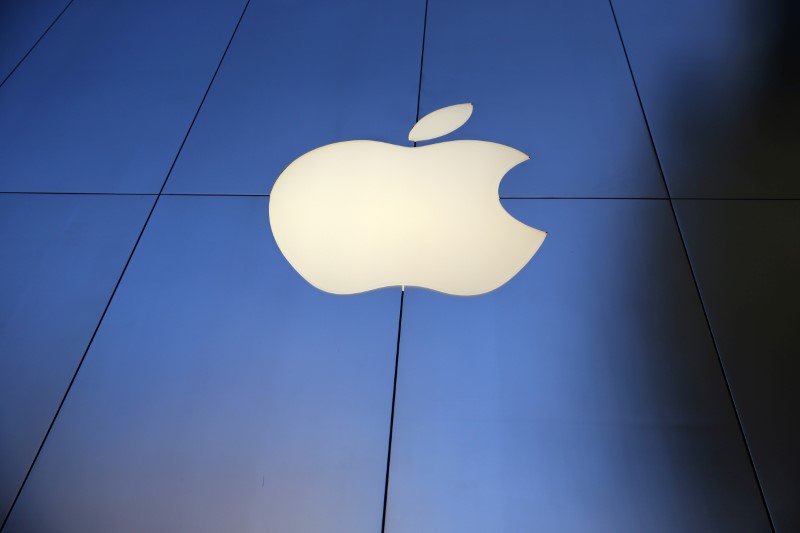By David Shepardson
(Reuters) - Apple Inc (O:AAPL) urged California to toughen up its proposed policy on testing self-driving cars, a move that would result in more public data that could help Apple catch up to rivals in the self-driving space by giving it a better window into their strengths and weaknesses.
In a letter made public on Friday, Apple suggested a series of changes to the draft policy that is under development and said it looks forward to working with California and others "so that rapid technology development may be realized while ensuring the safety of the traveling public."
Waymo, the self-driving car unit of Google parent company Alphabet Inc (O:GOOGL), Ford Motor Co (N:F), Uber Technologies Inc [UBER.UL], Toyota Motor Corp (T:7203), Tesla Motors Inc (O:TSLA) and others also filed comments suggesting changes.
California said on Tuesday it would review comments before deciding whether to make changes to the policy that aims to allow companies to test vehicles without traditional steering wheels and controls or human back-up drivers.
The state is at the forefront of a crowded race to develop self-driving vehicles and the proposed changes from automakers and technology companies help provide insight into current efforts.
In its letter, Apple said California should revise how companies report self-driving system "disengagements." California currently requires companies to report how many times the self-driving system was deactivated and control handed back to humans because of a system failure or a situation tied to traffic, weather or road conditions that required human intervention for safety reasons.
But Apple wants those rules to extend to humans stepping in to prevent even minor traffic violations. Apple contends the reporting rules as written leave too much wiggle room for car makers and "caused public confusion and misunderstanding," wrote Steve Kenner, Apple's director of product integrity.
Apple also asked regulators to revisit language around the definition of an autonomous vehicle to clarify that permits are required in advanced systems even when a safety driver is present.
The exact wording around when permits are needed became a sticking point between Uber and state officials last year when the California Department of Motor Vehicles ordered Uber to cease its self-driving tests in San Francisco.
Apple also said the state's rules for development vehicles used only in testing could "restrict both the design and equipment that can be used in test vehicles."
A late entrant to the self-driving race, Apple secured a permit earlier this month to test autonomous vehicles in California. Although it has never openly acknowledged it is looking into building a car, Apple has recruited dozens of auto experts. The company declined to comment on Friday.
'STIFLE INNOVATION'
Tesla said California should not bar testing of autonomous vehicles that are 10,000 pounds (4,535 kg) or more, a move that Apple also joined. Tesla said such a move could "stifle innovation," and bar a company from testing a heavy autonomous vehicle that might be used to haul parts on private property rather than on public roads, pushing developers in this sector out of the state.
Elon Musk, chief executive of Tesla, in 2016 announced plans for new electric vehicles, including a commercial truck called the Tesla Semi and a public transport bus. The electric vehicle pioneer said earlier this month it plans to unveil a commercial truck in September.
Tesla also said California should not prohibit the sale of non-self-driving vehicles previously used for autonomous vehicle testing. Tesla said that under the proposal, if it loads a vehicle with autonomous testing software and then replaces it with conventional production software it could be barred from selling the vehicle.
Uber said California should allow paying members of the public to ride in autonomous vehicles with drivers, saying: "There is no reason to deny those riders an opportunity to travel in an autonomous test vehicle and provide honest feedback."
Lyft Inc, a ride-hailing service rival of Uber, asked the state to remove a requirement that it notify local authorities of autonomous vehicle testing.
Waymo asked California to remove its liability proposal. On Tuesday, General Motors Co (N:GM) had said the state's proposed liability rules could make automakers liable regardless of fault for any crash. GM also said that automakers should be allowed to reuse autonomous vehicles and parts after testing or if the vehicle is scrapped.
Volkswagen AG (DE:VOWG_p) and Daimler AG (DE:DAIGn) submitted joint comments seeking changes to the extent of data required to be retained in crashes involving self-driving cars.

A number of automakers have said they plan to begin deploying self-driving vehicles, some in commercial fleets, by 2020-21.